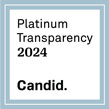Global Ocean Refuge System Launched by Marine Conservation Institute
November 4, 2013
Recently at the Third International Marine Protected Areas Congress (IMPAC3) in Marseille, France, Marine Conservation Institute announced a new effort to recover and maintain the diversity and abundance of marine life, the Global Ocean Refuge System or GLORES (pronounced glôr-ees).
Human activities are threatening our oceans and pushing many marine species toward extinction. MPAs are the most cost-effective way to protect the diversity and abundance of ocean ecosystems, but less than 3% of the sea is protected (the area of stronger, no-take protection is lower, ~1% according to MPAtlas.org). GLORES will be a worldwide system of protected areas to prevent mass extinction of marine life. As the human population grows, climates change and oceans acidify, a diversified portfolio of protected places ensures us against these changes.
Aligned with Aichi Target 11 under the Convention on Biological Diversity, GLORES aims to secure strong, effective protection for 10% of each of the world’s marine biogeographic regions by 2020. By 2030 GLORES aspires to reach 20% protection, a stronger goal than the Aichi Target 11. These are ambitious, but achievable, targets.
Like Mission Blue, Marine Conservation Institute is dedicated to protecting the ocean’s most important places. We’ve devoted the past year to developing GLORES, a comprehensive, science-based strategy for advancing marine protected areas (MPAs) worldwide.
Marine Conservation Institute and our GLORES partners will assemble an international panel of marine scientists to develop transparent criteria for Global Ocean Refuge designation. Much like Leadership in Energy & Environmental Design (LEED) green building standards, we want Global Ocean Refuge status to become the international standard for marine protected areas. Existing and proposed marine protected areas will receive one of three different grades: Gold, Silver or Bronze Global Ocean Refuge status; or no status if they do not meet a minimum standard. Tangible benefits to individuals and governments will include increased international prestige and economic returns.

Saving life on Earth is urgently important because we are inextricably tried to biological diversity. Oceans constitute 99% of the permanent habitat for complex life on Earth, and have hosted life for some 3.5 billion years. Marine life created our oxygen-rich atmosphere and continues to provide half the oxygen we breathe. Marine life provides a fifth of the animal protein we eat. Marine life maintains the climates that our civilizations and economies are built upon. Marine life reduces pollution and protects low-lying coastlines from storms. Our fate depends on life in the sea.
Our planet now faces the most dangerous catastrophe of the last 66 million years, since the impact of an asteroid caused cataclysmic damage, eliminating more than half of the Earth’s species. But today’s mass extinction has a very different cause: people.
There is reason for hope. The rate of designation of new MPAs accelerated sharply after President George W. Bush (at our and others’ urging) gave permanent, strong protection to the waters around the northwestern Hawaiian Islands (Papahānaumokuākea Marine National Monument) in 2006 and two other colossal areas (in 2009) that are now no-take marine reserves (the strongest MPAs). These and other areas around the world such as the Chagos Marine Reserve are enormous and well protected. And other areas are in the process of going from Hope Spot to MPA, such as the Sargasso Sea. Still, in other places the phenomenon of “paper parks” continues. To have real conservation benefits, we need more strongly protected MPAs.
The growing threats to oceans and people makes it necessary to have enough well-protected places to ensure against loss if more than one or two places experience a simultaneous disaster, such as a Deepwater Horizon-magnitude oil spill. If we save only one of each kind of habitat, we run the risk of extinction. But if we protect more than one of each habitat in each region, then recolonization and recovery of damaged areas can occur, should a disaster strike.
That’s crucial because MPA borders cannot stop the advance of some of threats to the oceans (e.g., climate change and acidification). But MPAs can create diverse and abundant “safe havens” as things get worse.
To save the world’s living oceans and humankind, we need better solutions. That is why Marine Conservation Institute is dedicated to helping to build the Global Ocean Refuge System, and why we are seeking partners to make it happen. Please visit www.globaloceanrefuge.org to learn more.
Feature Story: Lance Morgan, President, Marine Conservation Institute
Feature Photo: John Weller









Thank goodness someone is prepared to do something. The oceans are the base of all life…so called civilised man has moved so far away from the simple knowledge.
As Somerset Maugham said:
“The Degree of a Nations Civilisation is marked by its disregard for the Necessities of life..”